Featured
The Maldivian ‘new normal’

By Sonu Shivdasani
It has been a torrid few days in the Maldives’ battle against Covid-19: we’ve seen spikes in new cases and, unfortunately, the country’s first victim. In much of the rest of the world, though, the news has been more positive. Many countries, which are also big tourism markets to the Maldives, have flattened the curve and slowly started opening back up.
Life is starting to resemble a sort-of-normal in places such as Austria, Switzerland and Germany (although there is still no date for when international borders will reopen). Hopefully, the Maldives will flatten its curve over the next couple of weeks and bring the virus outbreak under control. This begs the question: what might the ‘new normal’ look like here?
There are many unique aspects to the virus. One of the most unexpected relates not to epidemiology, but to politics. In every global crisis since the Second World War, the United States led the global recovery effort. But under President Trump, America has turned its back to the world, and shunned international co-operation. Under Obama or Bush, the world could have sat back and allowed the superpower to lead efforts to combat the virus, and set international protocols about air travel and reopening borders. In the absence of US leadership, the Maldives, alongside everyone else, will have to figure this out on their own.
With travel and tourism accounting for a huge slice of the Maldivian economy and generating most jobs, clearly a ‘new normal’ has to include the re-opening of the country to tourists. But how can this be done safely?
We will have to work closely with other countries and organisations. This means striking bilateral agreements with our major tourism markets in Western Europe, India, and China, as well as working with international tourism bodies such as the United Nations World Tourism Organisation (UNWTO) to establish a way forward. One of the tricky issues will be establishing new protocols on how people can travel, how they are screened upon arrival, and how they can avoid the requirement to quarantine for two weeks when they return home.
For the Maldives, testing and screening passengers upon arrival and departure will have to become part of our new normal; it is difficult to see how we can reopen safely without it. This will pose challenges and require strict new protocols at the airports, but testing will become progressively easier as test kits become quicker, cheaper, and more reliable.
Hygiene will become a major consideration, or ‘qualifier’, for holidaymakers. Nobody wants to stay in a dirty hotel room, but in the Covid-19 era, hygiene will take on a whole new meaning. Travel and tour operators will compete fiercely on providing a safe, hygienic holiday, where social distancing can be maintained. Last week brought news of a partnership between Bureau Veritas, a testing, inspection and certification company, and Accor, a major hotel chain, which will establish standards for hygiene in hotel operations.
Other hotel companies are bound to follow suit, tying up with inspection agencies in order to reassure would-be travellers that their hotel rooms, restaurants and communal areas are properly sanitised, and the property isn’t overcrowded.
In an era where guests are as preoccupied about safety and hygiene as they are about the quality of the food, Maldivian resorts are well placed. The country is one of the few to operate a policy of ‘one island one resort’ – a geographic advantage that makes it much easier to prevent and contain a coronavirus outbreak, because each resort can strictly control who steps onto their island. In fact, the English word ‘isolation’ and the Italian ‘isola’ both derive from the Latin ‘insula’, which means island. Island = isolation. Perhaps the country’s tourism strapline, “The Sunny Side of Life” needs to change to reflect the safe, isolated nature of its resorts.
At Soneva, we’ve been thinking through our own ‘new normal’. We believe that customers’ fears over safety will be allayed by a rigorous new testing regime. Soneva plans to give everyone who arrives at our resorts a quick coronavirus test. After completing the test, guests will be escorted straight to their villa, or staff to their host accommodation, until the result comes through. If the test is negative, the guest or host can carry on as normal. If the test is positive, we will follow government rules, which likely means moving people to an isolation facility – which are fortunately some of the world’s most luxurious, located in resorts.
If such a testing policy was introduced across the Maldives, it will reassure tourists that the country is safe to visit, and also reduce the likelihood of future virus outbreaks. Robust testing also provides the Maldives with the opportunity of creating something truly unique: virus free resorts.
By testing everyone who comes onto an island, we can ensure that everybody on it is clear of the virus. This would render social distancing, and no-touching rules, unnecessary within that particular island. Maldivian resorts could thus transport guests back to the heyday of 2019, without constant coronavirus reminders spoiling their holiday. This could be a major ‘differentiator’ for Maldivian tourism compared to other holiday destinations.
For the rest of the world, largely made up of bigger countries adjoined to each other by land borders, it is almost impossible to create virus-free havens. The threat of infection will always lurk in the building across the street, the hotel staff who travel to work each morning on crowded public transport, or from the neighbouring country with a porous border.
The ‘new normal’ in the Maldives will be different to the normal life we enjoyed before Covid-19. But the country remains extremely lucky because of its unique geography. If the right testing protocols are established, the Maldives will enjoy a significant competitive advantage – something that could underpin its future prosperity, even during these troubled and turbulent times.
Editor’s Note: This op-ed was originally published on Linkedin by Sonu Shivdasani. Sonu is the founder and CEO of Soneva, which owns luxury resorts Soneva Fushi and Soneva Jani in the Maldives, and Soneva Kiri in Thailand.
Featured
Ancient banyan tree anchors spiritual experiences at Machchafushi Island Resort
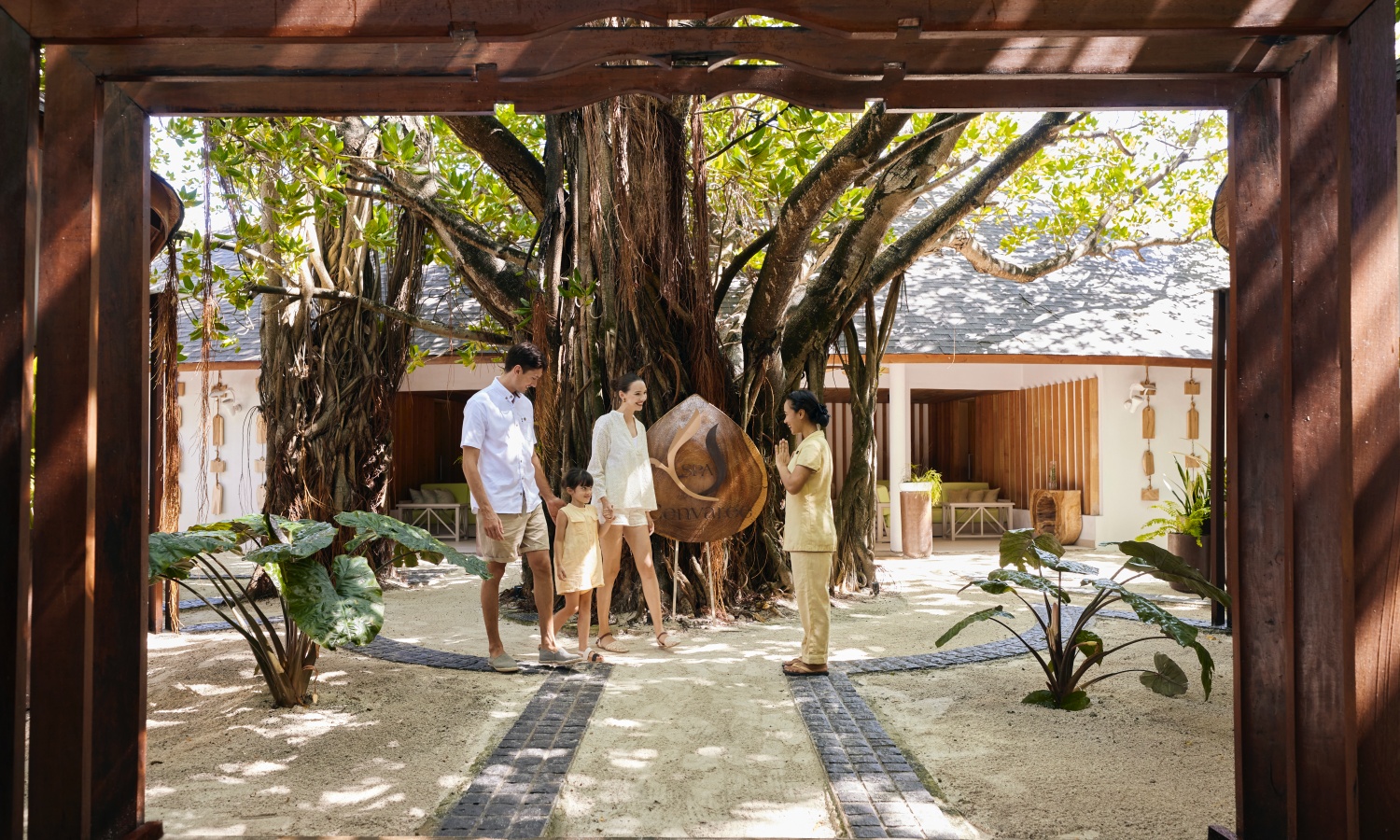
Machchafushi Island Resort & Spa, part of The Centara Collection, offers an island experience shaped by the rhythm of the ocean in the heart of South Ari Atoll. While the resort is widely recognised for its celebrated dive sites, award-winning house reef and rich marine life, another presence quietly anchors the spirit of the island.
Within the peaceful grounds of SPA Cenvaree stands a centuries-old banyan tree known locally as the Ummeedhu Tree, meaning Wish Fulfilment. With its expansive canopy and cascading aerial roots, the tree is regarded as more than a natural landmark. It is a symbol of continuity and reflection, standing as a silent witness to the island’s past and present.
Long before the island became a resort destination, the banyan tree stood rooted in the sands of Machchafushi. Today, the resort honours it as the spiritual heart of the island, inviting guests to pause beneath its branches and engage in moments of reflection and reconnection.
This connection is expressed through the Sacred Thread Ceremony, a contemplative ritual designed to offer guests a personal and meaningful experience. The ceremony begins with a quiet walk through the spa gardens, encouraging stillness and intention. Guests select a delicate golden leaf to represent a personal wish—whether for love, wellbeing, success, abundance or inner peace—and hold it alongside a wish card while visualising that intention fulfilled. The golden leaf is then tied to the banyan’s ancient branches, symbolising the offering of the wish to the tree’s enduring presence. The leaf remains there, carrying the quiet energy of the intention until the guest’s return.
Beyond the banyan, the island continues its natural rhythm. The surrounding waters form part of one of the Maldives’ most significant marine environments, known for year-round whale shark encounters and an extensive house reef that stretches beyond the shoreline. Yet amid the movement of the sea and the vibrancy of coral life, it is often the stillness beneath the banyan tree that leaves the most lasting impression.
Sustainability and heritage are integral to life on Machchafushi Island. Located within the South Ari Marine Protected Area, the island is committed to safeguarding both its marine ecosystems and its cultural identity. The banyan tree stands as a reminder that preservation extends beyond the natural environment to include traditions, stories and the deeper connections between people and place.
At Machchafushi Island Resort & Spa, each day unfolds with moments shaped by nature and intention. From golden sunrises over the lagoon to wishes entrusted to ancient branches, experiences on the island are designed not only to be remembered, but to take root.
Featured
City Iftar experience curated at JEN Maldives by Shangri-La

JEN Maldives by Shangri-La is welcoming the holy month of Ramadan with a series of Iftar evenings at Lime Restaurant, inviting guests to gather in the spirit of reflection, gratitude and togetherness.
Recognising Ramadan as a time that brings families, friends and communities closer, the hotel has curated an Iftar experience designed to go beyond dining. The focus is on creating a welcoming environment where traditions are observed, conversations unfold naturally and shared moments are celebrated around the table.
Located in the heart of Malé, Lime Restaurant provides a warm and contemporary setting suited to a range of gatherings, from colleagues reconnecting after work to families and friends breaking fast together. Each evening reflects the generosity associated with Ramadan, featuring carefully prepared dishes, live cooking stations and a selection of sweet treats that balance traditional flavours with creative touches.
Iftar at JEN Maldives by Shangri-La is shaped by attentive service and thoughtful hospitality. Guests are welcomed into an atmosphere that blends comfort with understated elegance, allowing space for reflection while enjoying a relaxed dining experience. The hotel’s culinary and service teams work closely to ensure consistency, quality and authenticity throughout the season.
Whether for intimate gatherings or larger group celebrations, the venue offers flexibility supported by a culinary programme rooted in care and attention to detail. The Ramadan offering is designed to ensure guests feel at ease while enjoying a distinctive Iftar experience in the capital.
Throughout the holy month, JEN Maldives by Shangri-La invites guests to come together at Lime Restaurant to experience evenings defined by flavour, generosity and meaningful connection, in keeping with the true spirit of Ramadan.
Drink
Provence comes to Maldives with Château Minuty dinner at Milaidhoo Maldives
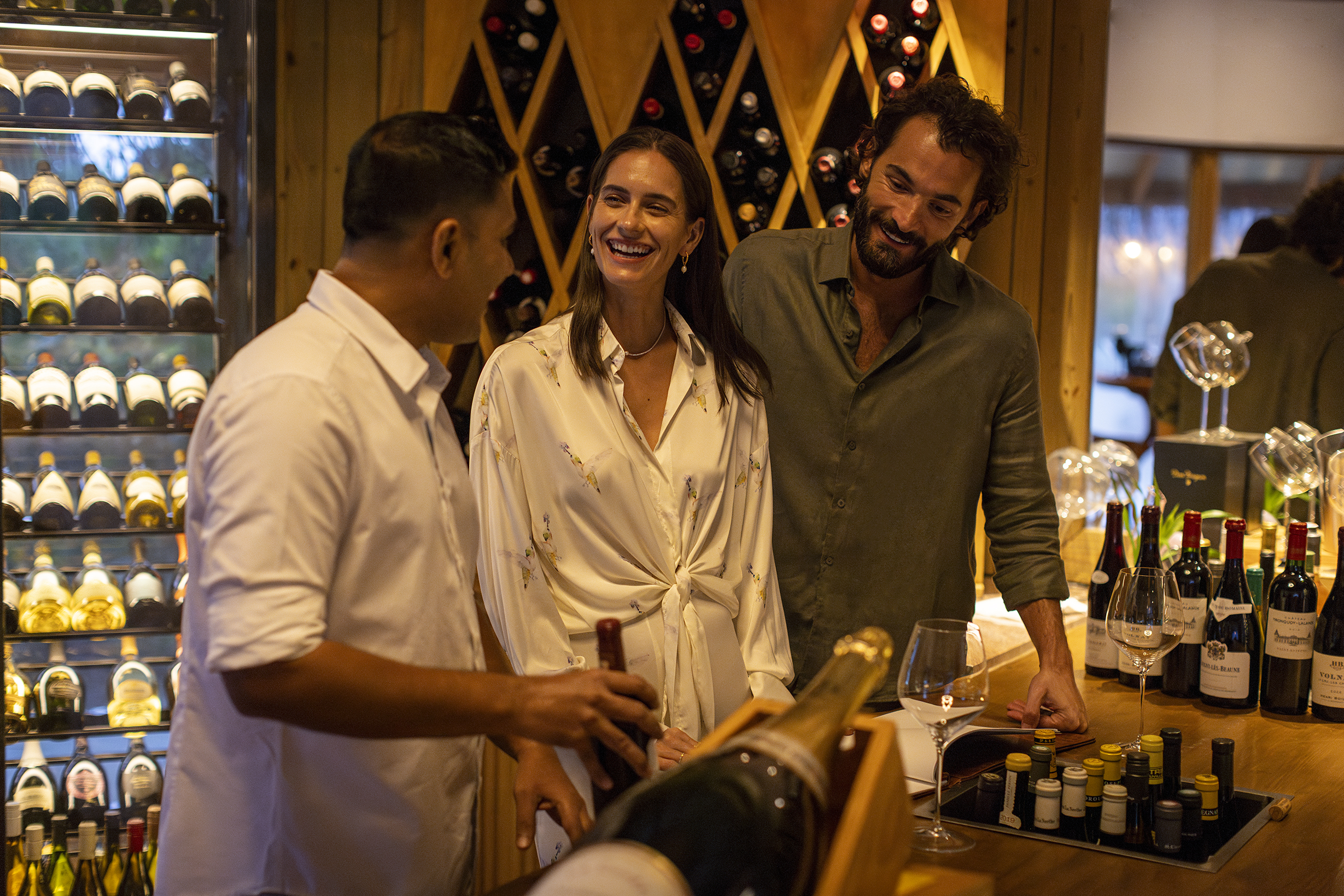
Milaidhoo Maldives is hosting a wine pairing dinner celebrating Provençal elegance and gastronomy on 4 March 2026 at the resort’s Shoreline Grill. The evening will feature wines from Château Minuty and will be hosted by Sébastien Nore, Global Strategy and Export Director of Château Minuty, offering guests insight into the winery’s heritage and approach to fine winemaking.
Originally from Limousin, France, Nore brings extensive experience in the international beverage industry. His career includes roles with Kronenbourg Wineries and PepsiCo France, followed by senior leadership positions at Diageo and Baron Philippe de Rothschild. He has played a key role in expanding Château Minuty’s global presence and currently oversees the winery’s strategy, sales, communication and marketing, with a focus on innovation and the refined character of Provençal rosé.
During the dinner, guests will enjoy a curated selection of Château Minuty wines, paired with a bespoke menu created by the Shoreline Grill culinary team. The featured wines include:
- Château Minuty M de Minuty Rosé Magnum 1.5L – Artist Edition 2024
- Château Minuty Prestige Rosé 2024
- Château Minuty Rosé et Or 2024
- Château Minuty 281 2024
Beyond this event, the dinner reflects Milaidhoo Maldives’ wider commitment to gastronomy. The resort’s Gourmet Plan is designed for guests with a strong interest in food and wine, offering personalised, multi-course dining experiences throughout their stay. Each menu is crafted to highlight the relationship between carefully selected ingredients and complementary wines, with an emphasis on authenticity and balance.
The Château Minuty dinner marks the fourth wine-focused event hosted by Milaidhoo Maldives this year, underscoring the resort’s ongoing focus on curated culinary experiences. The evening is positioned as a sensory journey, combining refined flavours, thoughtful pairings and a convivial island setting.
-
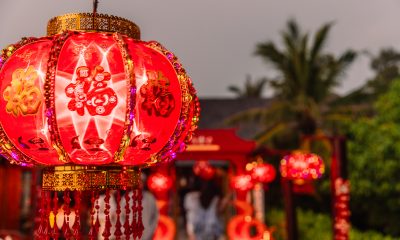
 Featured1 week ago
Featured1 week agoYear of the Horse celebrations across Sun Siyam’s Luxury, Privé and Lifestyle resorts
-
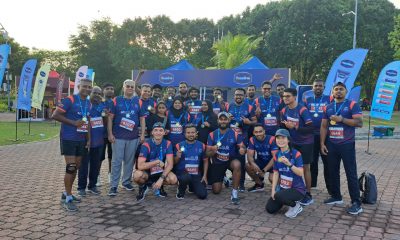
 Action7 days ago
Action7 days agoBestbuy Maldives supports health, wellness as Main Sponsor of MNU Marathon 2026
-

 Awards1 week ago
Awards1 week agoEllaidhoo Maldives secures HolidayCheck Gold Award for second consecutive year
-

 Cooking7 days ago
Cooking7 days agoMaagiri Hotel invites guests to celebrate Ramadan with daily Iftar
-
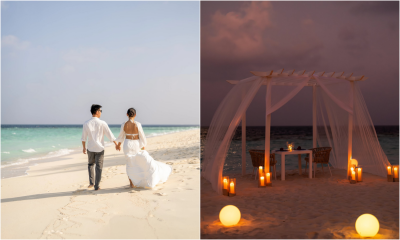
 Love7 days ago
Love7 days agoRomance in nature: Valentine’s week at Eri Maldives
-
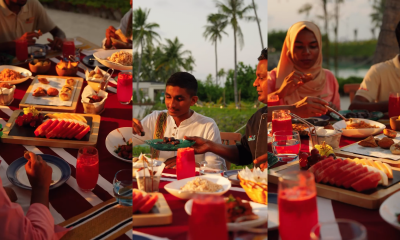
 Food1 week ago
Food1 week agoOBLU XPERIENCE Ailafushi invites guests to break fast island-style this Ramadan
-
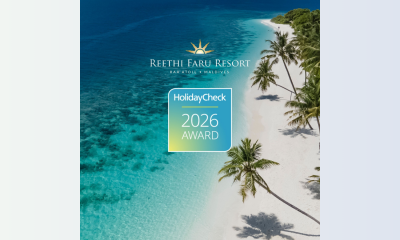
 Awards1 week ago
Awards1 week agoReethi Faru Resort recognised with HolidayCheck Award 2026
-
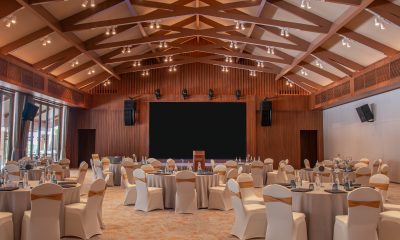
 Business5 days ago
Business5 days agoFeydhoo Hall opens at dusitD2 Feydhoo Maldives as new event space








